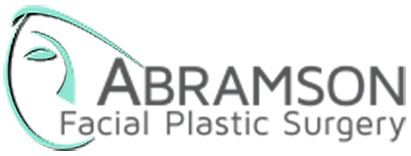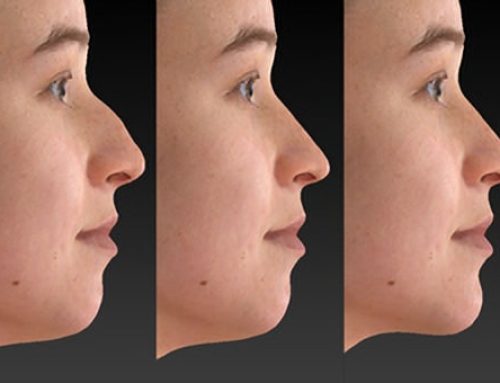Dr. Abramson reviews Rhinoplasty pre-op and post-op appointments as well as what information will be covered at each.
After our consultation and examination, and we’ve gotten to the point where we are proceeding with the nose reshaping surgery, patients will come in for a preoperative evaluation and discussion. At that time, which usually occurs somewhere around 2 weeks prior to the procedure, we will sit down and I will do a re-evaluation, as well as discuss the goals we both have, and then at that time go through some of the things that the patient can expect before, during, and in the postoperative time period. We also at that time do quite a bit of paperwork, going over some of the technical details of the procedure as well as consent forms and preoperative and postoperative instructions. The patients will get their pre and postoperative medications at that time, which usually involves some anti-nauseal medication, on occasion some antibiotics, and usually a prescription strength pain medicine.
At the same time, our assistant will go over some of the postoperative care that the patients will need to do, and will provide the patient with a post-op kit that includes almost, if not all of the things that they will need at home postoperatively. We also encourage patients to not take any supplemental medications that are not prescription. In particular, any nutritional supplements or even any vitamins unless they are prescription strength. This reduces our risk of having excess bleeding during or after the surgery. I used to have a 2-3 page list of all the medications that we knew of that created a postoperative or intraoperative bleeding issue for us, but what I do with the patients is go through their medication list to determine what challenges we may face, such as blood thinners, such as aspirin or ibuprofen, that we generally recommend patients not take two weeks prior to the procedure. There are some patients that have to take these for certain medical issues and we can go through those with the patient or even their primary doctor or if necessary their cardiology team.
After surgery, we generally recommend that the patients take ibuprofen if necessary as we have not seen it increasing the risk of bleeding in our postoperative Rhinoplasty patients. Also, postoperatively, cleaning instructions which our nurses will provide for you are very basic and easy to accomplish. After surgery, one week later, we will see you in the office and go over any of the questions you may have as well as remove the splints that my be inside the nose or the cast on top of the nose. I rarely if ever put any nasal packing in the nose and if I do, it’s a pad that dissolves on it’s own with nasal saline irrigation or when you come back in and I suction the nose. At that time it is not painful, and not the same packing that many patients have heard of in past years of Rhinoplasty that has to be removed.
Dr. Abramson performs Rhinoplasty procedures in his own surgical suite in Atlanta, GA, a convenient drive for those in Buckhead, Dunwoody, Sandy Springs, Marietta, Roswell, Alpharetta and beyond.






